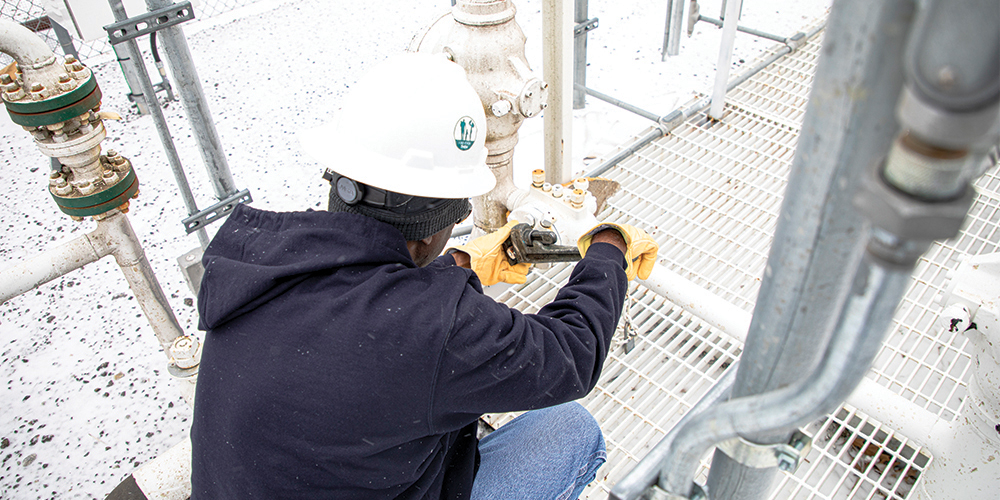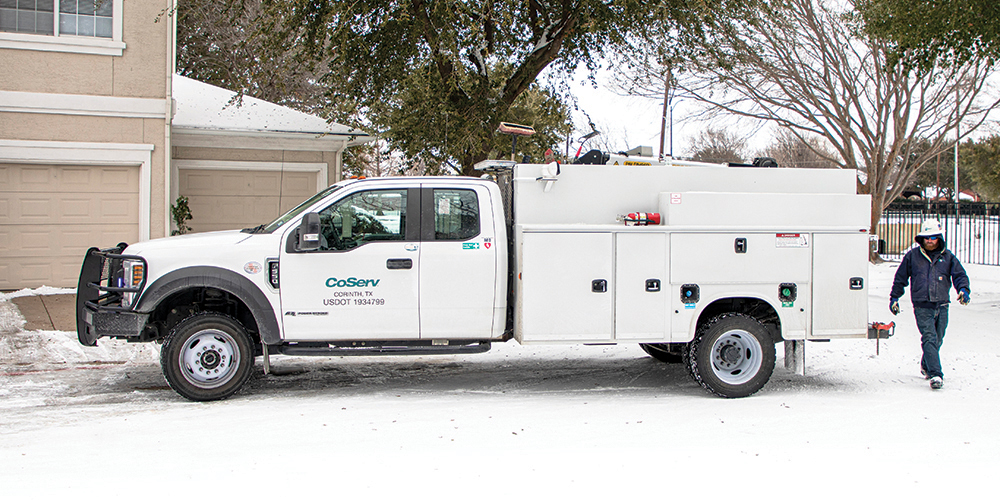How CoServ prepares for Old Man Winter

Whether it's buying energy ahead of time, training our operations crews or winterizing the fleet, CoServ starts preparing for cold weather long before the local television meteorologists issue their forecasts.
The Energy Engineering department buys seasonal blocks of electricity months or even a year ahead of time to cover normal Texas weather.
“When we get about a month out, if the long-range forecast says we’re going to have a cold snap, then we will look at buying additional electricity to cover that short-term period to lock in the price a month ahead of time instead of waiting until it happens,” said Director of Energy Engineering Gary Franzen.
Buying these blocks of power with generators saves money for CoServ and ultimately keeps costs lower for Members. Additional electricity is purchased from Brazos Electric Power Cooperative and the Electric Reliability Council of Texas (ERCOT) a day ahead and during real-time market conditions.
Unlike electricity, which is purchased long before it’s generated, CoServ Gas physically stores gas in tanks until it’s needed. Director of Finance for Gas Charley Harrell, said it is typical to buy the base load gas that’s needed in October or November because it’s cheaper than buying on the spot market – especially when the weather turns cold.

“You really want to make sure you have storage – especially now when you have great volatility – available for you when you see those really cold days. Those are the days the price will spike,” Charley said.
If cold weather is coming, CoServ makes sure our linemen are equipped with jackets, hand warmers and other cold weather gear so they can respond quickly and safely to power outages.
“For the guys who work in the elevated buckets, it’s colder up there, so we have to rotate guys out. We’ll let them work for a little bit, then take a break in the truck to warm up if he needs to,” said Vice President of Field Operations Shea Hassell.
If ice is in the forecast, it’s critical that CoServ stock up on materials so that our linemen and crews can repair broken cross arms and other common problems that occur when ice builds up on the lines and utility poles. CoServ also makes sure the fleet is properly winterized so crews can respond to outages.
As the temperature drops and gas Customers crank up their heaters, there is an increased demand on our system. CoServ Gas crews are trained to monitor gas regulator stations during cold snaps to manually increase the pressure. These stations must be monitored every 15 minutes to balance the pressure. It’s not uncommon for gas technicians to work 12 to 16 hours at these stations and use their trucks to stay warm.
Whether they’re electric linemen or gas technicians, it’s critical for our crews working in the elements to put safety first.
“Sometimes when you have a goal in front of you, you ignore some of your own well-being if you’re getting cold and your hands are getting numb,” said Director of Job Safety and Training Ben DeRemer.
When winter weather escalates to the point where it’s an emergency, CoServ enacts its Emergency Response Plan (ERP). CoServ starts training for ERP scenarios in November, but the conversations planning for emergencies take place all year long.
“We just have the expectation that we need all hands on deck in a true emergency restoration.All departments come together and you may be doing jobs that your department doesn’t traditionally do,” Ben said. “We’re always training and preparing for any type of event that could challenge us on our system.”
All of this is done with one thing in mind – to continue providing our Members and Customers with reliable energy in a way that keeps everyone safe.

